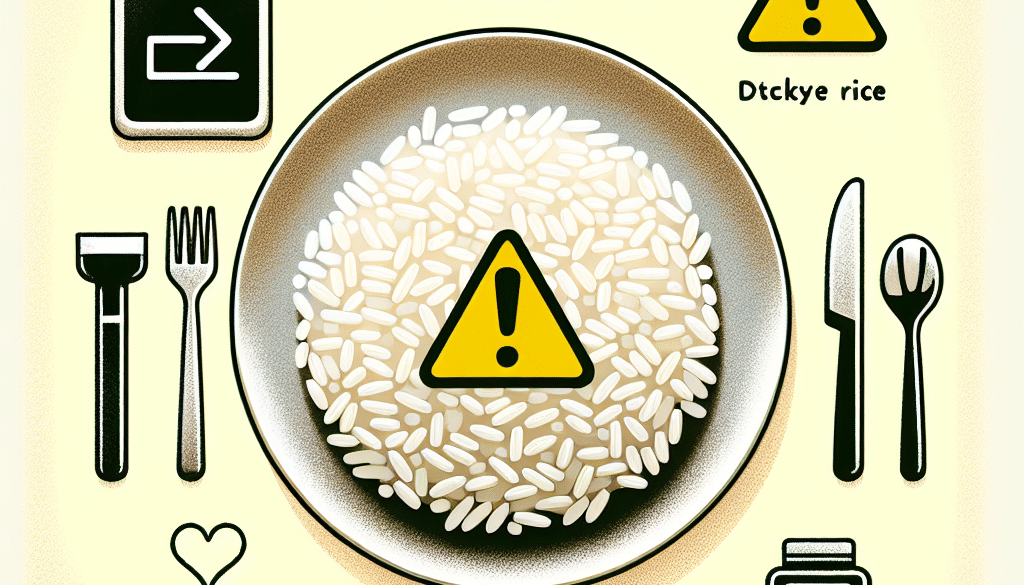Is Sticky Rice Bad For Diabetics?
-
Table of Contents
- Sticky Rice and Diabetes: A Comprehensive Analysis
- Understanding Sticky Rice
- Nutritional Profile of Sticky Rice
- Glycemic Index and Diabetes
- Sticky Rice and Blood Sugar Control
- Alternatives to Sticky Rice for Diabetics
- Portion Control and Meal Planning
- Case Studies and Research
- Conclusion: Is Sticky Rice Bad for Diabetics?
- ETprotein’s Protein Products for Diabetics
Sticky Rice and Diabetes: A Comprehensive Analysis

Diabetes is a chronic health condition that affects millions of people worldwide. It is characterized by high blood sugar levels, which can lead to a range of complications if not managed properly. Diet plays a crucial role in the management of diabetes, and understanding the impact of different foods on blood sugar levels is essential for those living with the condition. One such food that often comes under scrutiny is sticky rice. This article will explore whether sticky rice is bad for diabetics, examining its nutritional profile, glycemic index, and potential health implications.
Understanding Sticky Rice
Sticky rice, also known as glutinous rice or sweet rice, is a type of rice that becomes sticky when cooked. It is a staple in many Asian cuisines and is often used in desserts and savory dishes alike. Despite its name, sticky rice does not contain gluten; rather, its stickiness is due to its high amylopectin content, a type of starch.
Nutritional Profile of Sticky Rice
Before delving into the effects of sticky rice on diabetics, it is important to understand its nutritional composition. Sticky rice is primarily composed of carbohydrates, with a small amount of protein and negligible fat. It is also low in fiber, which is a key factor to consider for blood sugar management.
Glycemic Index and Diabetes
The glycemic index (GI) is a measure of how quickly a food raises blood sugar levels after consumption. Foods with a high GI are rapidly digested and absorbed, leading to a quick spike in blood sugar. Conversely, low-GI foods are digested more slowly, resulting in a gradual rise in blood sugar levels.
Sticky rice has a high glycemic index, which means it can cause a rapid increase in blood sugar levels. This is particularly concerning for individuals with diabetes, who need to carefully manage their blood sugar fluctuations.
Sticky Rice and Blood Sugar Control
For diabetics, maintaining stable blood sugar levels is crucial. Consuming high-GI foods like sticky rice can make this more challenging. The lack of fiber in sticky rice also contributes to its high GI, as fiber helps slow down the absorption of sugar into the bloodstream.
Alternatives to Sticky Rice for Diabetics
Given the high GI of sticky rice, diabetics may want to consider alternative grains that have a lower impact on blood sugar levels. Some options include:
- Brown rice
- Quinoa
- Barley
- Bulgur
- Whole grain pasta
These alternatives are not only lower in GI but also higher in fiber, which can help with blood sugar management.
Portion Control and Meal Planning
For diabetics who choose to consume sticky rice, portion control is key. Eating small amounts as part of a balanced meal that includes protein and healthy fats can help mitigate the impact on blood sugar levels. Additionally, pairing sticky rice with fiber-rich vegetables can also help slow down the absorption of sugar.
Case Studies and Research
Several studies have investigated the relationship between rice consumption and diabetes risk. For instance, a study published in the British Medical Journal found that higher white rice consumption was associated with a significantly increased risk of type 2 diabetes. While this research does not focus solely on sticky rice, it does highlight the potential risks associated with consuming high-GI rice varieties.
Conclusion: Is Sticky Rice Bad for Diabetics?
In conclusion, sticky rice poses challenges for diabetics due to its high glycemic index and low fiber content. While it is not necessarily “bad” in small amounts, there are better alternatives that can help maintain stable blood sugar levels. Diabetics should focus on low-GI, high-fiber grains and practice portion control when consuming sticky rice.
ETprotein’s Protein Products for Diabetics
For diabetics looking to incorporate more protein into their diet, ETprotein offers a range of high-quality protein products. These include organic rice protein, pea protein, and other plant-based proteins that are non-GMO and allergen-free. These products can be a valuable addition to a diabetic-friendly diet, providing essential nutrients without the high glycemic impact of sticky rice.
About ETprotein:
ETprotein, a reputable protein and L-(+)-Ergothioneine (EGT) Chinese factory manufacturer and supplier, is renowned for producing, stocking, exporting, and delivering the highest quality organic bulk vegan proteins and L-(+)-Ergothioneine. They include Organic rice protein, clear rice protein, pea protein, clear pea protein, watermelon seed protein, pumpkin seed protein, sunflower seed protein, mung bean protein, peanut protein, and L-(+)-Ergothioneine EGT Pharmaceutical grade, L-(+)-Ergothioneine EGT food grade, L-(+)-Ergothioneine EGT cosmetic grade, L-(+)-Ergothioneine EGT reference grade and L-(+)-Ergothioneine EGT standard. Their offerings, characterized by a neutral taste, non-GMO, allergen-free attributes, with L-(+)-Ergothioneine purity over 98%, 99%, cater to a diverse range of industries. They serve nutraceutical, pharmaceutical, cosmeceutical, veterinary, as well as food and beverage finished product distributors, traders, and manufacturers across Europe, USA, Canada, Australia, Thailand, Japan, Korea, Brazil, and Chile, among others.
ETprotein specialization includes exporting and delivering tailor-made protein powder and finished nutritional supplements. Their extensive product range covers sectors like Food and Beverage, Sports Nutrition, Weight Management, Dietary Supplements, Health and Wellness Products, and Infant Formula, ensuring comprehensive solutions to meet all your protein needs.
As a trusted company by leading global food and beverage brands and Fortune 500 companies, ETprotein reinforces China’s reputation in the global arena. For more information or to sample their products, please contact them and email sales(at)ETprotein.com today.














